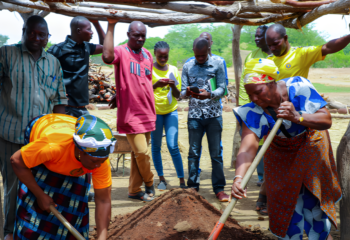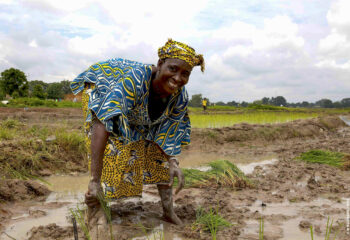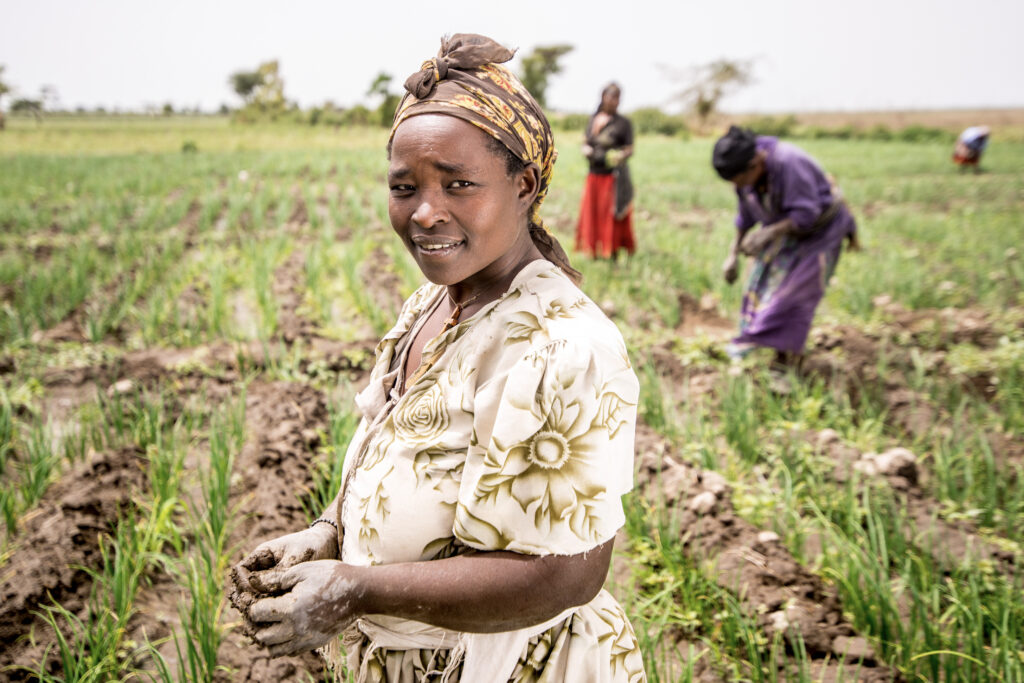
This year’s International Youth Day, celebrated with the theme “Local Youth Actions for the SDGs and Beyond,” is the perfect time to connect acceleration with local action.
Youth across the globe are already advancing solutions for multiple Sustainable Development Goals (SDGs) – including No Poverty (1), Zero Hunger (2), Gender Equality (5), Decent Work and Economic Growth (8), and Climate Action (13) among others – and IFDC is committed to facilitating efforts led by these young innovators.
The Power of Local Youth in Agricultural Transformation
In sub-Saharan Africa and South Asia, where IFDC supports youth-led initiatives in soil health and agrifood systems, youth make up about 65-77% of the population. Most are found in rural areas and face challenges in transitioning from school or vocational training to employment or entrepreneurship, but the rising demand for fresh and processed food creates opportunities for them in agricultural value chains.
When young people tap into these transformational opportunities with appropriate support, they increase their ability to reduce poverty and food insecurity.
With increased access to technology, digital platforms, and global networks, these youth are well positioned to drive agriculture through precision farming, data-driven decisions, and more. However, they also face significant barriers, such as limited infrastructure and inadequate access to land, credit, and adapted services. Many also face a lack of private sector and community support.
Turning these barriers into opportunities can empower youth to become drivers of local economies. One effective way to accomplish this is to present agriculture realistically and positively – as a source of revenue, meaningful contribution to communities, recognition from peers, and boosted personal agency.
When young people tap into these transformational opportunities with appropriate support, they increase their ability to reduce poverty and food insecurity.
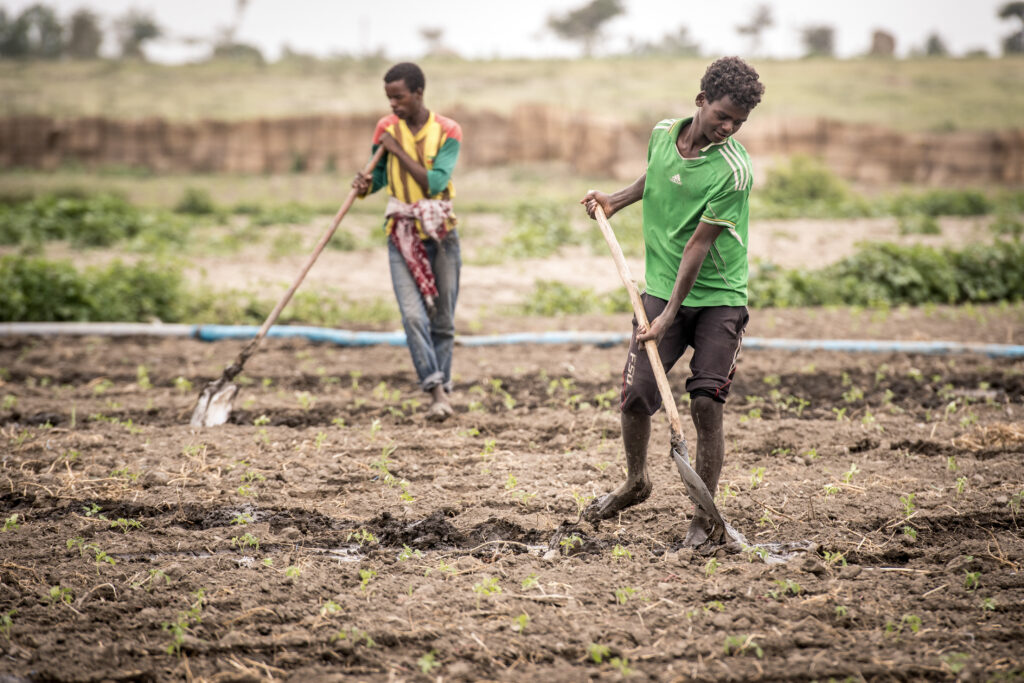
Through agribusiness initiatives, cooperative farming, and active roles within agribusiness clusters, young people are not only creating jobs; they are transforming local economies, strengthening food systems, and challenging outdated perceptions of youth.
When scaled and supported, youth-led models become engines of innovation and change, reinforcing global progress on the SDGs from the ground up.
IFDC in Action: Supporting Youth at the Grassroots
Equity for all, especially regarding women and youth, is one of IFDC’s core values. IFDC projects, such as Accelerating Agriculture and Agribusiness in South Sudan for Enhanced Economic Development (A3-SEED), Toward Sustainable Clusters in Agribusiness through Learning in Entrepreneurship (2SCALE), HortiNigeria, and many more, incorporate systemic action for youth empowerment into their overall plans.
For instance, the A3-SEED project in South Sudan recently provided inclusive training, notably beneficial for women and youth, to smallholder farmers to become spray service providers. This successful training resulted in timely crop spraying in communities such as Torit and Magwi, where the concept was still new.
As some youth lacked the resources to access these services, A3-SEED developed a training of trainers model, equipping extension workers to train farmers directly for greater accessibility and affordability.
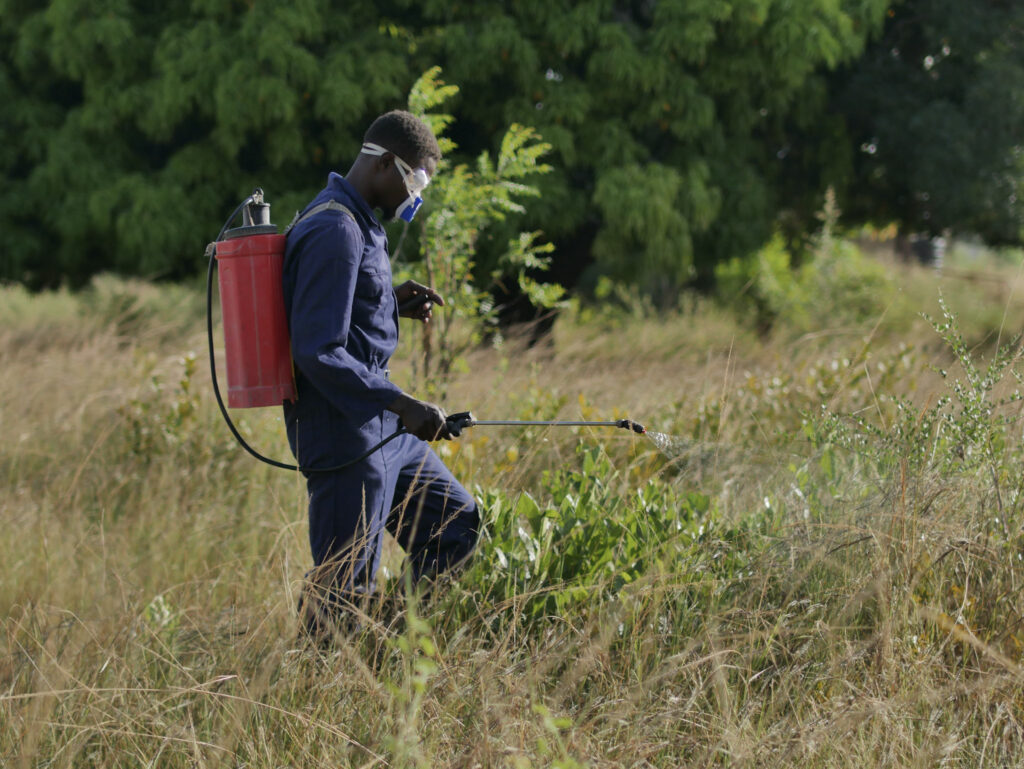
Onek, a young agro-dealer in Magwi, saw his business transform after A3-SEED’s trainings. Once focused solely on selling pesticides, he now offers spray services and promotes eco-friendly, non-chemical pest control.
Onek remarked of his progress, saying, “Now, I aim to expand my business and hire additional workers at the shop to assist with sales whenever I am called out to provide pesticide spray services.”
A second initiative, HortiNigeria’s youth empowerment, leadership, and entrepreneurship (ELE) program, equips young participants in Nigeria with leadership skills, creating an enabling environment to sustain youth participation in the horticulture sub-sector.
One trainee, Samuel Tunde Oyediran, is addressing labor shortages and youth unemployment in Abeokuta through a practical farm labor socio-economic model.
“One major challenge in Ogun State is that farmers often can’t find labor when they need it most during peak seasons… I realized the issue wasn’t just labor shortage, but the lack of a skilled and organized workforce,” Samuel observed.
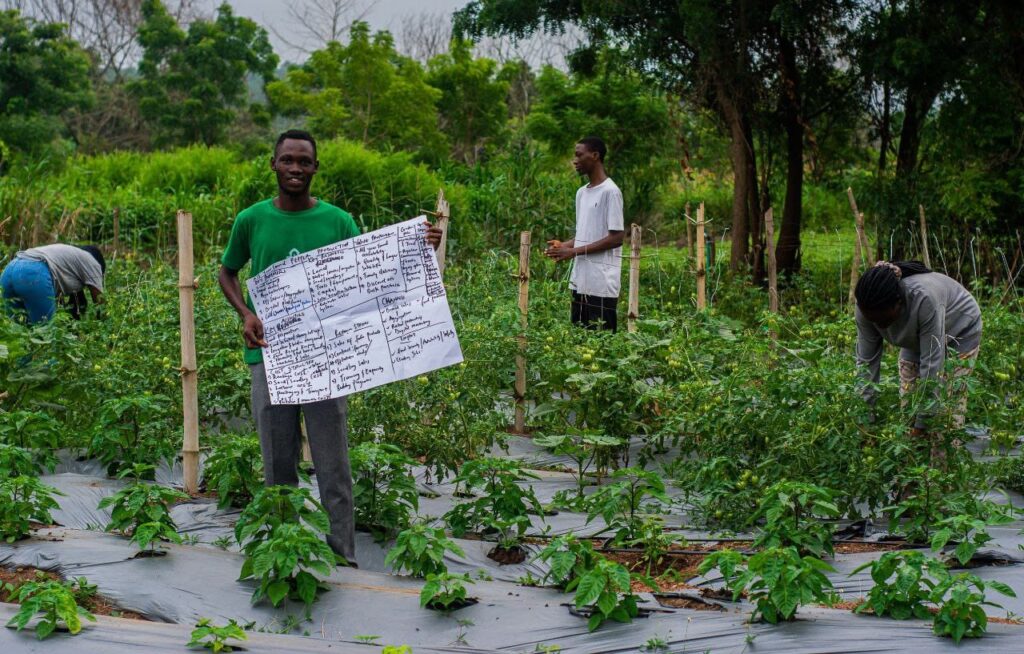
Samuel developed a farm labor outsourcing and training program that connects farmers with reliable workers, creating jobs for youth and rural women. “It’s more than supplying labor,” he declared. “It’s about building people and solving real problems.”
Samuel’s initiative addresses deeper issues like food security, equity, and restoring dignity to farm work, especially for women. The team plans to expand across Ogun State by training more youth, building a digital booking platform, and partnering with communities, cooperatives, and donors to expand impact.
Lastly, the 2SCALE program is fostering global networking and empowering youth by nurturing entrepreneurship among youth-led small and medium enterprises. 2SCALE equips young agri-preneurs with essential skills in business, communication, and other practical subjects to grow their enterprises and step into leadership with confidence.
2SCALE has also designed a digital platform that enhances connectivity by linking youth to peers, mentors, and potential employers, broadening their networks and unlocking new opportunities. It also functions as a dynamic space where insights, best practices, and resources are shared through peer-led training and mentorship.
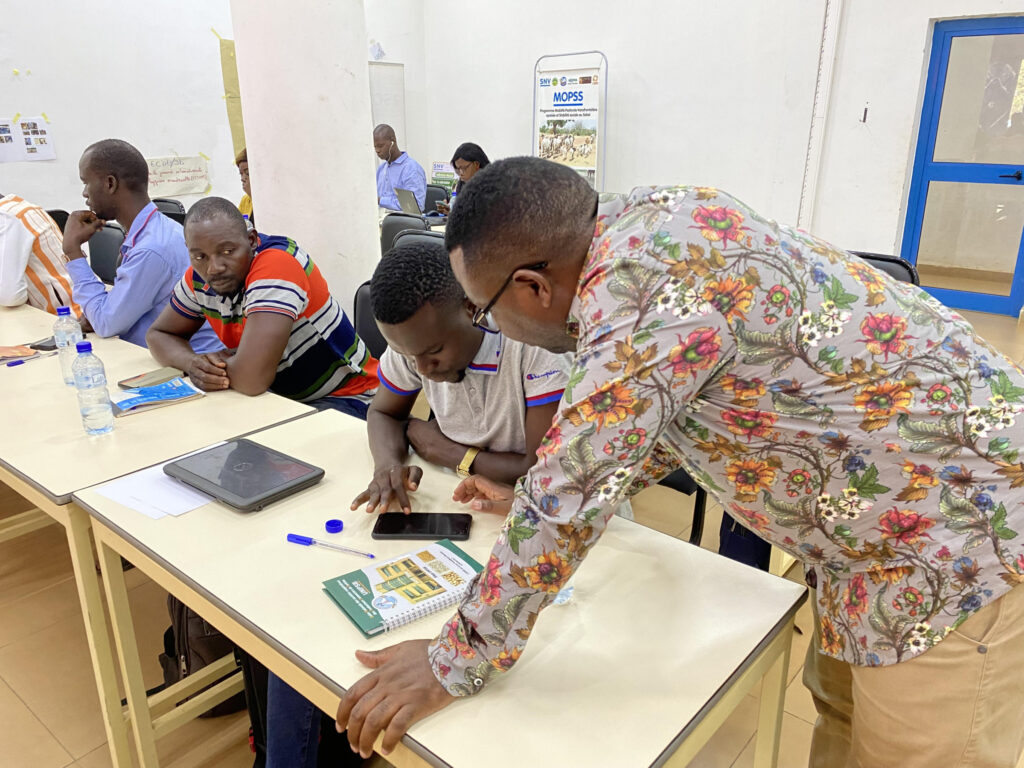
By enabling meaningful youth participation in agrifood systems through digital access, the platform contributes to inclusive, sustainable transformation within and beyond local communities.
Beyond the SDGs: Investing in a Sustainable Future
Investing in a sustainable future means investing in the people and resources that will ensure the progression of dynamic agricultural value chains.
It means investing in young people by preparing them to be innovative and resilient and investing in the skills that will enable them to lead their communities.
Starting small with strong foundations encourages progressive growth at higher echelons. Youth are drivers for accelerated change in agriculture, especially when communities believe in them and co-facilitate local change under their leadership.
This is why IFDC regularly evaluates and adjusts its programs’ methods of support for youth in soil health management and agricultural systems.
Now is the time to listen, invest in, and partner with youth. Join IFDC in championing local, youth-driven solutions that are making the SDGs a lived reality.

